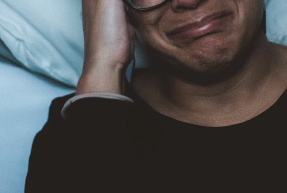Insomnia
Adults like to get about 8 hours sleep each night, so when that sleep is disturbed, or you have trouble getting off to sleep in the first place, then life can start to get your down. Insomnia (otherwise known as sleeplessness) is a sleeping condition where people either have trouble getting to sleep, or have trouble staying asleep. It can be exhausting, frustrating and depressing, causing you to worry at night, and lack energy during the day. And not uncommonly, the frustration and worry caused by insomnia conditions people to worry more, and sleep even less.
Counsellors and psychologists generally agree that there are two broad types of insomnia or sleep disorders:
Transient Insomnia: The first is Transient Insomnia, which as its name suggests tends to last for only a short time, and tends to be specifically related or caused by a particular stressful event, for example, a difficult work project, an exam, a wedding or a death.
Chronic Insomnia: The second is Chronic Insomnia, which might last for months or even years, and may attack most nights.
Insomnia is easy to pick, because you know when you are not sleeping well. You probably also notice that you are tired during the day, and you may feel restless, irritable, or even depressed. You probably wake up feeling tired, lack concentration, and you may suffer from headaches. Many people with insomnia find themselves unable to get to sleep (or stay asleep) without the aid of a sleeping tablet.
































